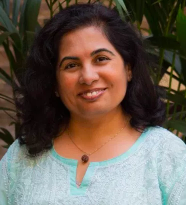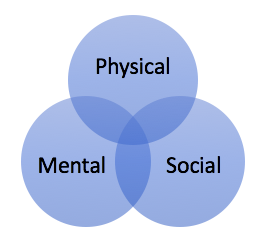We are delighted to publish a guest blog by Dr Seema Datta from Keyajee Ayurvedic Clinic, London.
Dr Datta is an Ayurvedic doctor, International speaker, and an award-winning Entrepreneur. She is an Ayurveda Graduate and obtained her degree in Bachelors in Ayurvedic Medicine and Surgery in 1995. She has been supporting women in their transition to motherhood since 1993.

Dr Datta briefly summarised what Ayurveda is as follows:
“‘Ayurveda’ (Ayu=life and Veda=science), as the name suggests, is the science of life or I say, it is the Manual for the living being. If we know Ayurveda, then we can access, live and obtain the best from everything our life has to offer.
The aim of the Ayurveda in the Sanskrit language is – “Swasthyasya Swasthya Rakshanam, Aturasya Vikar Prashamanam Cha” – which means “To Prevent the health of the healthy person and treatment of the disease when needed.”
Definition of a healthy person according to Ayurveda is very similar to the definition of health by WHO.
The World Health Organisation (WHO) has defined health as “a state of complete physical, mental, and social well-being and not merely the absence of disease or infirmity.”
Ayurveda defines a healthy person as someone who has “ Balance of biological factors, Metabolic fire, Bodily tissues and physiological functions along with positive mind and happy sensory organs and blissful soul.”
In simple words, Ayurveda advises a comprehensive and holistic approach to health and healthy living taking care of physical health, psychological, spiritual and social health.”

Dr Datta then briefly described the role of Ayurveda in Perinatal health, ie., during pregnancy, childbirth and post-childbirth period:
“One of the main principles of Ayurveda is that our body is a miniature of the whole universe- made with the same 5 basic elements eg. air, water, fire, earth, and the ether. Women are very fortunate to be gifted with the power of being able to replicate this miniature using her own 5 elements.
Ayurveda has explained the following stages during the perinatal period:
1. The preparation and process for conception (Garbhadhan Vidhi)
2. Month by month care of pregnant women ( Garbhini Paricharya)
3. The preparation for birth and care during the birth
4. Postnatal care (‘Sutika Paricharya’)
The practice of ‘Paricharya’ (means the daily routine /diet and lifestyle along with the specific herbs for that particular month) also emphasises the importance of self-care.”
It is important to remember that Ayurveda explains not only physical but also the psychological care of mother and also explains how it affects the psychology of the fetus she is carrying.

Dr Datta then explained how she supports women during the pregnancy, childbirth and post-childbirth period:
“The women go through at least 3 natural transitions in life: ‘Menarche’ (when their menstrual period begins), ‘Motherhood’ (when they get pregnant) and ‘Menopause’ (when they stop having their periods towards the end of their reproductive age).
I believe and I am sure you would agree with me, that the onset of Menarche and Menopause are not in our control. But a woman has a choice of whether to get pregnant and when. In my view, the preparation before the conception/ pregnancy (‘preconception care’) could be very helpful and should be encouraged whenever possible.
Therefore, in my practice, I always make sure that a woman is ready for this transition and understands and accepts that her body and her life are going to change when she goes through these changes.
I offer support throughout the journey by providing her with dietary advice for better nourishment and offering practical support and guidance to ensure positive thoughts, feelings, and emotions for a happy soul.

The support continues throughout (of course everyone needs to be individualised according to their individual needs) the entire pregnancy through different ways, such as:
1. The diet and lifestyle plans.
2. Simple but loving and nurturing healing massages specific to digestive organs (preventing and treating morning sickness, heartburn, bloating).
3. Yogic breathing (preventing fear of adverse pregnancy outcomes such as miscarriage or fear of childbirth).
4. Specific ‘Mantra’ month by month (Nurturing the beautiful connections between mother, baby, and the universe)
5. Preparation for birth with helping soften physical body using oils external massages and internal use as well, breathing techniques.
6. Preparing mind with positive affirmations.
7. Yoga-Nidra visualization
8. Soul-specific Mantra with specific music (‘Sound therapy’)
9. Supporting the woman at the time of childbirth as a Doula.”
Dr Datta also explained her care and support of the mother after the childbirth:
“I also provide postnatal support: 6 weeks of support to help rejuvenate, with specific Ayurvedic treatments (specifically to prevent back pain, postnatal depression,) diet and lifestyle plan, special postnatal food which is nourishing and easy to digest, herbal food supplements for better digestion and good quality breast milk.”
On behalf of the IFWIP team, we wish Dr Datta all the best for the future.
Photo credits:
Pixabay via www.pexels.com
Pixabay via www.pexels.com

